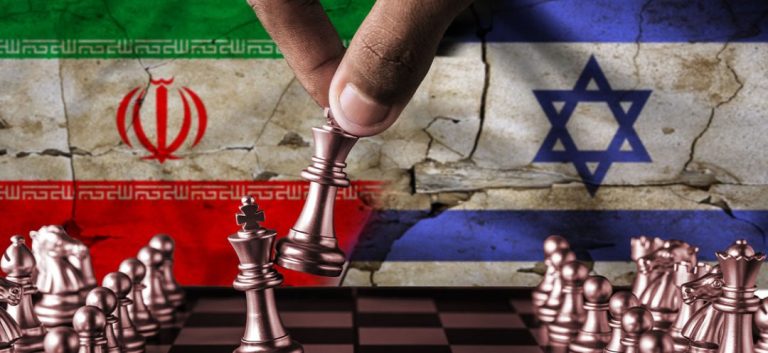Hide and seek: Say yes to Berri, to find out Hezbollah’s intentions
Michael Young/Now Lebanon/May 19/16
What did Nabih Berri’s proposals to the national dialogue session on Wednesday hide? Everyone is still scrambling to react to the speaker’s plan, though a Future Movement parliamentarian, Atef Majdalani, described it as “stillborn.”
As outlined by Hezbollah parliamentarian Ali Fayyad, the plan offers three options, two of which entail holding legislative elections before a presidential election. The first option would be to hold elections on the basis of a new electoral law, after agreement is reached in the parliamentary committee tasked with that role. The second option would be to hold elections according to the 1960 law. In both cases, parliament would immediately hold a session afterward to vote in a new president.
But as agreement over an electoral law seems virtually impossible today, one must turn to the third option in Berri’s proposal. He described it as “going to a new Doha,” whereby all the political forces would attend a national conference to hammer out a package deal on the presidency, an electoral law, a new government, and future dialogue, according to Fayyad.
Some observers regard the idea of a “new Doha” as a step toward a more profound change in the Lebanese system—what some have called a “foundational conference” to change the constitution. Nothing in Berri’s proposal indicates this, but there is a widespread belief among Hezbollah’s adversaries that the party is holding the presidential election hostage to impose changes in the political system that it desires.
Indeed, the idea of a new Doha would represent a shift away from constitutional texts, to find a solution outside them. Even if Berri is merely looking for a way out of the present impasse, the principal of bypassing the constitution and negotiating everything by committee represents a complete breakdown of the post-Taif political order. Worse, the speaker has been the person most guilty of undermining the constitution.
For instance he has pushed hard in recent months to hold legislative sessions to pass urgent laws. However, according to article 75 of the constitution, parliament is an electoral body during the period before a president is elected, not a legislative assembly. Consequently, according to constitutional experts, until an election is held, parliament does not have the latitude to vote on laws, a point Berri has ignored.
Are we witnessing the first sign by Hezbollah (with Berri’s help) that it is willing to accept a resolution of the deadlock of the past two years? Almost certainly. But the speaker’s proposal is unlikely to lead to an overhaul of the constitution, as has been suggested. A constitutional amendment requires a two-thirds majority in favor, and securing such a majority today, on any matter whatsoever, appears to be a pipe dream.
Yet it is also true that once there is agreement over holding a new Doha, there may be no limits to what can be discussed. This is what Hezbollah’s political foes fear. What is to stop the party from putting everything on the table, including the expansion of Shia representation, legitimization of the party’s weapons, and more? In theory nothing. The very fact that all sides agreed to such a mechanism to resolve Lebanon’s stalemate could, in a sense, establish a dangerous precedent for the future.
This precedent would effectively sideline the constitution as the guidepost of national action, which is what Hezbollah has long sought. However, in the chaotic, shifting world of Lebanese politics, is Berri’s proposal worth considering, if only as a potentially practical way out of the mess in which we are today?
Conceivably yes, if the “new Doha” session is well defined, and its agenda specified beforehand. Certainly, going through such a process would better illustrate the true intentions on the speaker’s and Hezbollah’s side. The March 14 parties (or what remains of March 14) can test the waters without necessarily risking much at first. Knowing what Hezbollah seeks could be an essential step in ending the presidential vacuum.
But is it realistic to expect a solution? The key word here is “Doha.” Like “Taif,” it shows how the major conferences on Lebanon in recent decades have always occurred elsewhere, under some form of regional sponsorship, reflecting a regional consensus. Today that seems impossible, particularly with Iran and Saudi Arabia so hostile to one another. Not only is there no agreement over Lebanon, the country is not on the radar.
In other words the most powerful actor in a new Doha would be Hezbollah. It could be that the party is looking for a political solution in Lebanon because it is facing an open-ended quagmire in Syria and rising discontent from its own ranks–which the results of municipal elections in Baalbek-Hermel two weeks ago illustrated. Hezbollah is not losing ground, but there are disturbing indicators that it can no longer ignore.
That is why it is worth looking at Berri’s suggestion more closely, even if, ultimately, it is rejected. For the first time in two years there is a mechanism on the table to emerge from the standoff. Definitely it conceals very different intentions. But to find out what these are, respond to Berri with a conditional yes.
***Michael Young is a writer and editor in Beirut. He tweets @BeirutCalling.




















